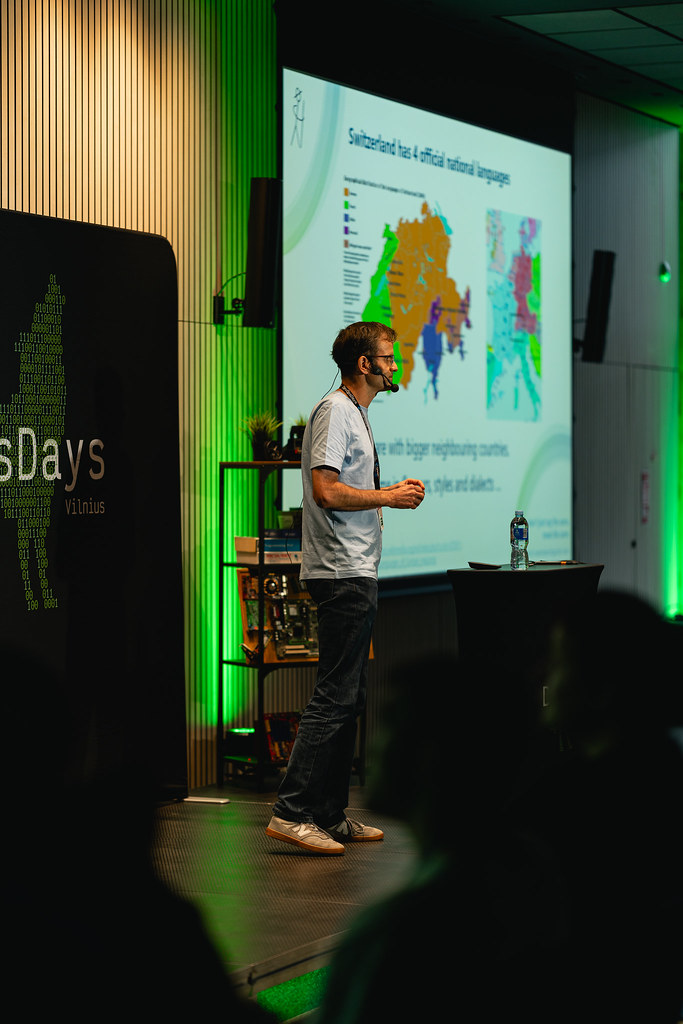don't just say the same, mean the same - how to overcome linguistic silos
This is a transcript of the ignite talk which I have given at the DevOpsDays Vilnius 2025 last week.
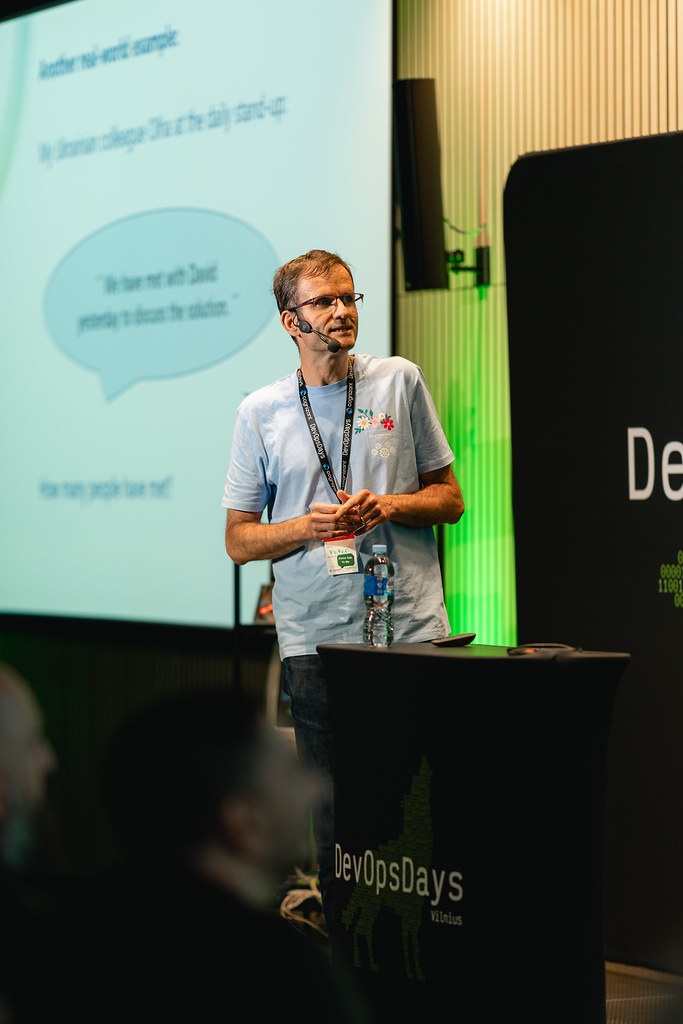
If you don’t know what an ignite talk is, you might want to check out my previous article about my first such talk given at the DevOpsDays Zürich last year where I explain the format and how to best prepare for it.
I had a great two days at this event which was perfectly organized. Kudos to the organizing team! As at the DevOpsDays Zürich which I have already attended twice, the atmosphere was extremely welcoming and inclusive as probably best illustrated by the “Pac Man Rule” which asks participants not to stand in closed circles but always leave room for others to join in:
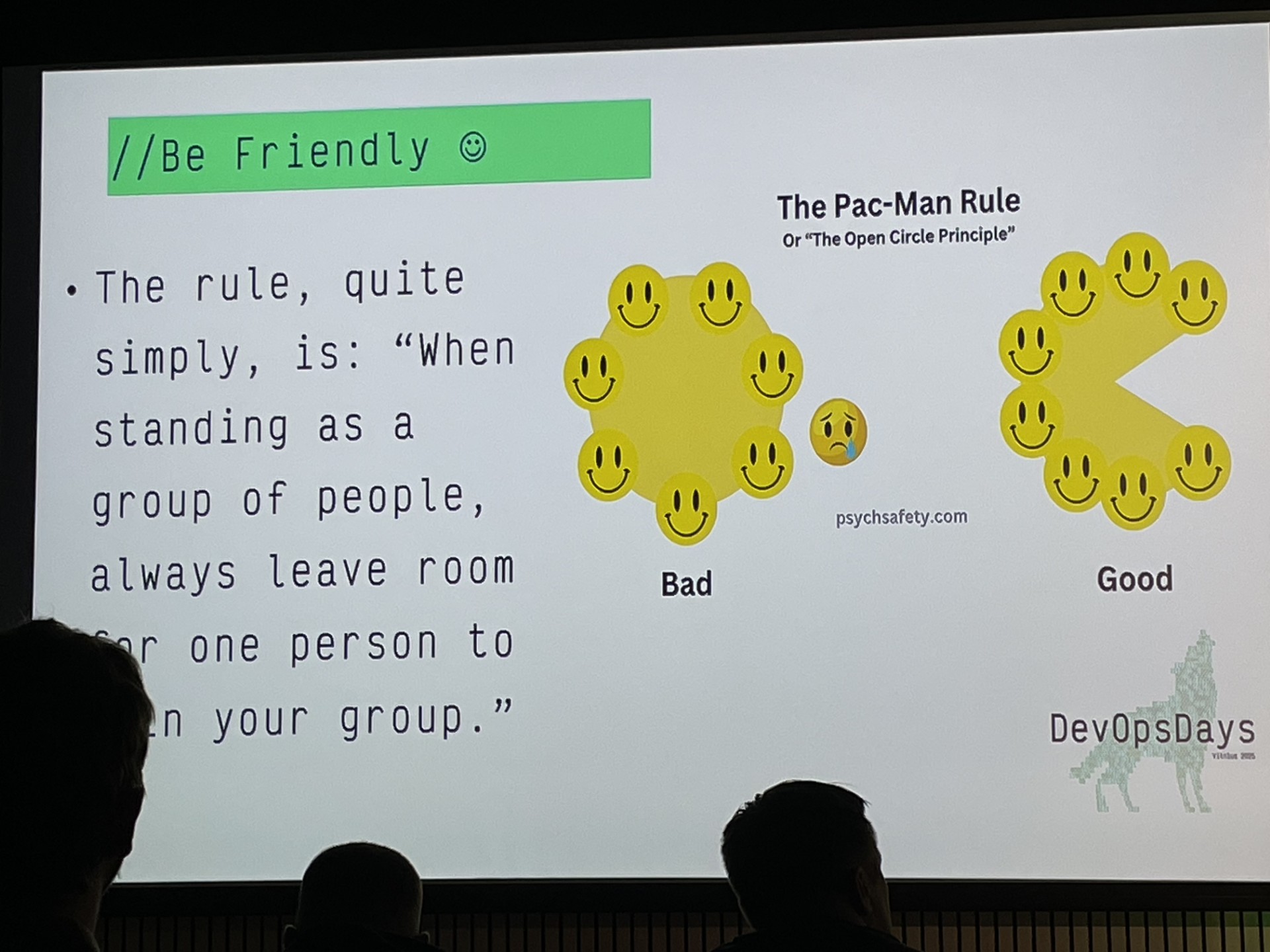
The name tags also had a “handle” (or rather an instruction on how the person wanted to be handled?) for which one could choose from three stickers:
- Come talk to me (I might be too shy to talk to you first)
- I will talk to you if I want to talk (otherwise please do not talk to me)
- Don’t talk to me at all (I am here for the presentations, not for conversation)
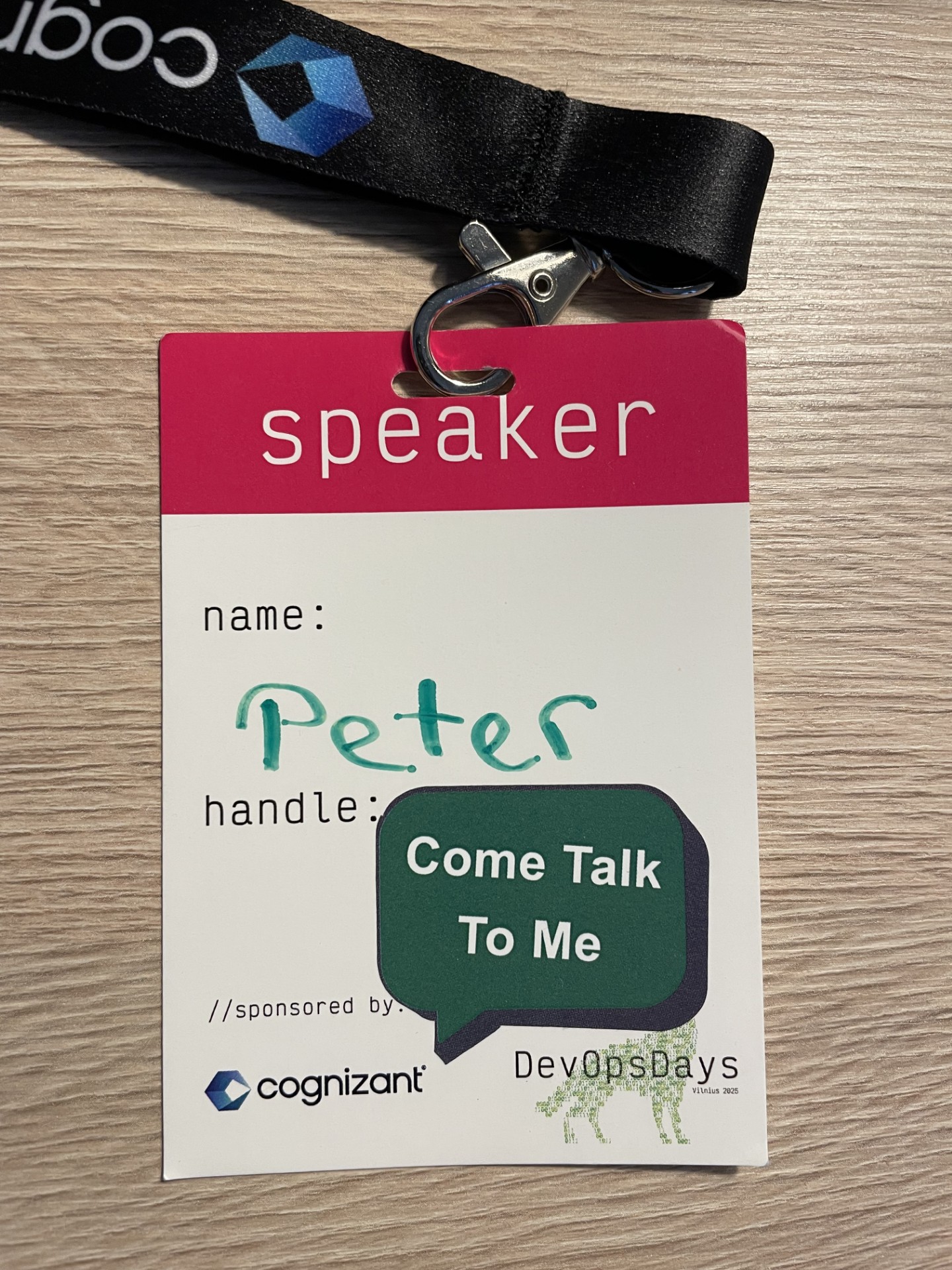
You immediately know what you’re at with anybody you encounter :-) Expectations well managed!
But now to the transcript of my talk:
Laba diena. Mano vardas yra Peter.
That’s about all I can say in Lithuanian. But I want to learn more because I love your language.
I love languages in general. That’s why I talk about language.
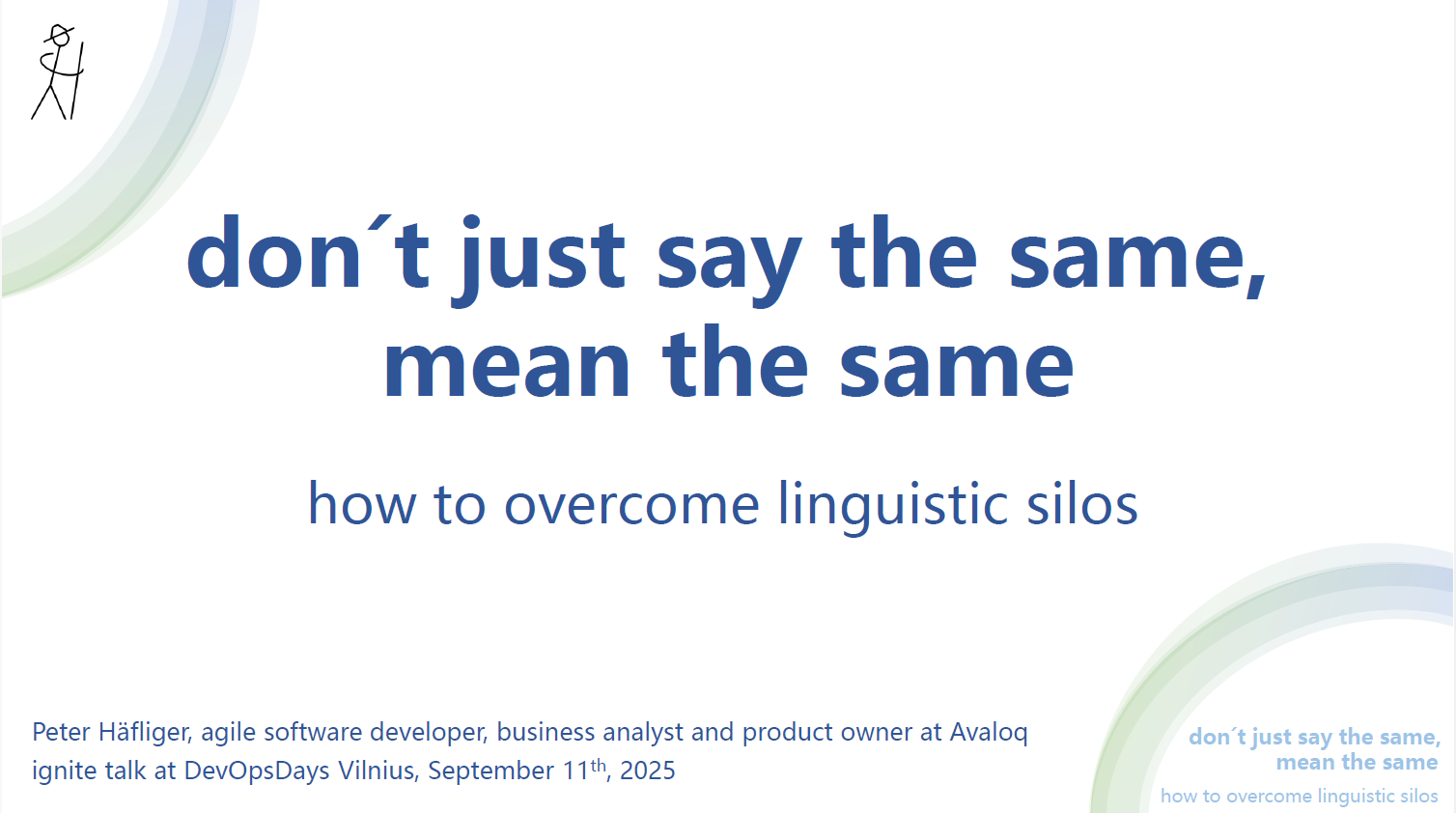
Linguists distinguish between “concepts” and their “labels” or “terms” or “names”.
Obviously, different languages use different labels. And as the cover does not change a book, the label will not change a concept.
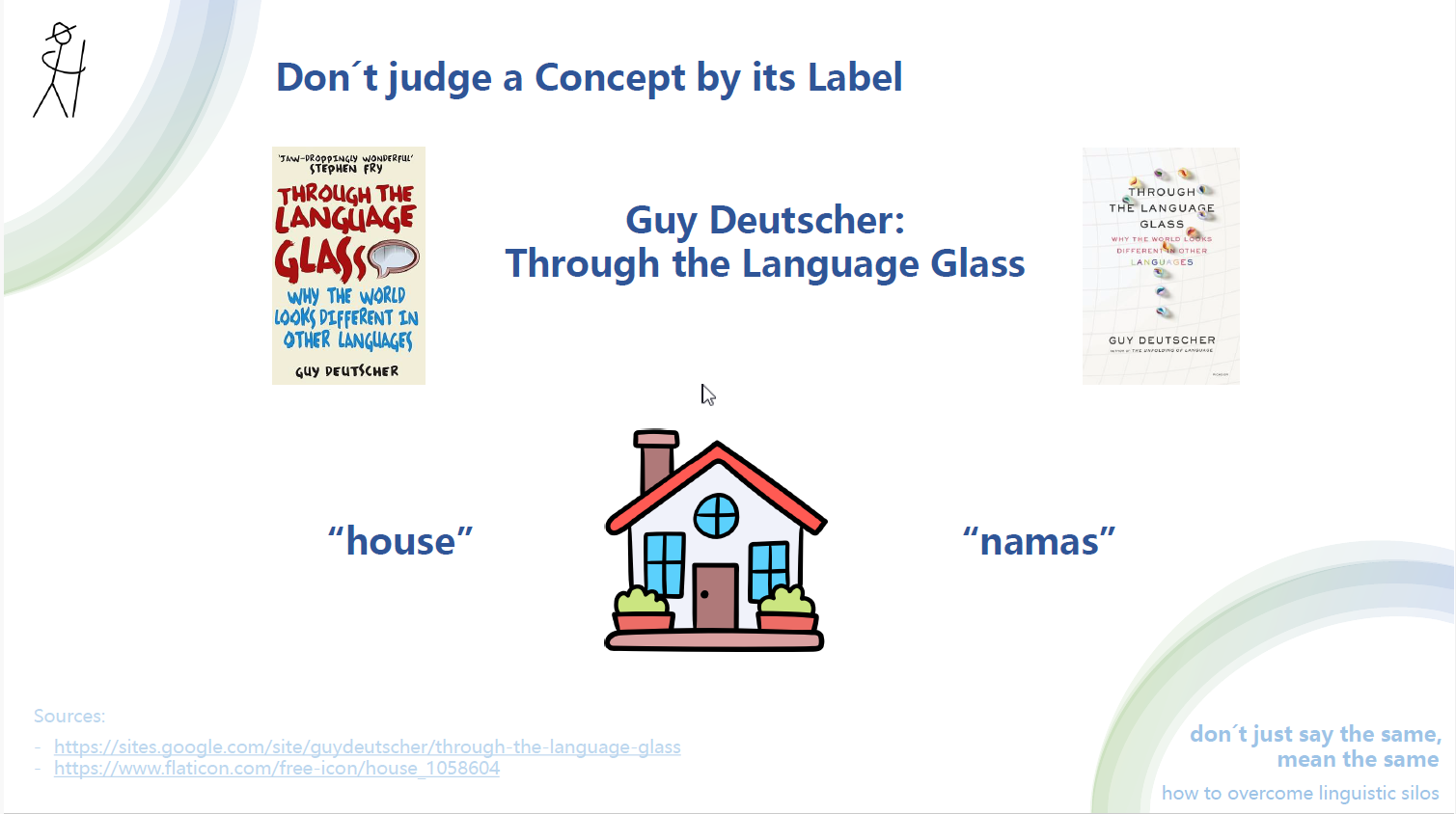
Because a house is still a house, even if you call it namas, and a rose by any other name would smell as sweet (as Juliet says in Shakespeare’s play).
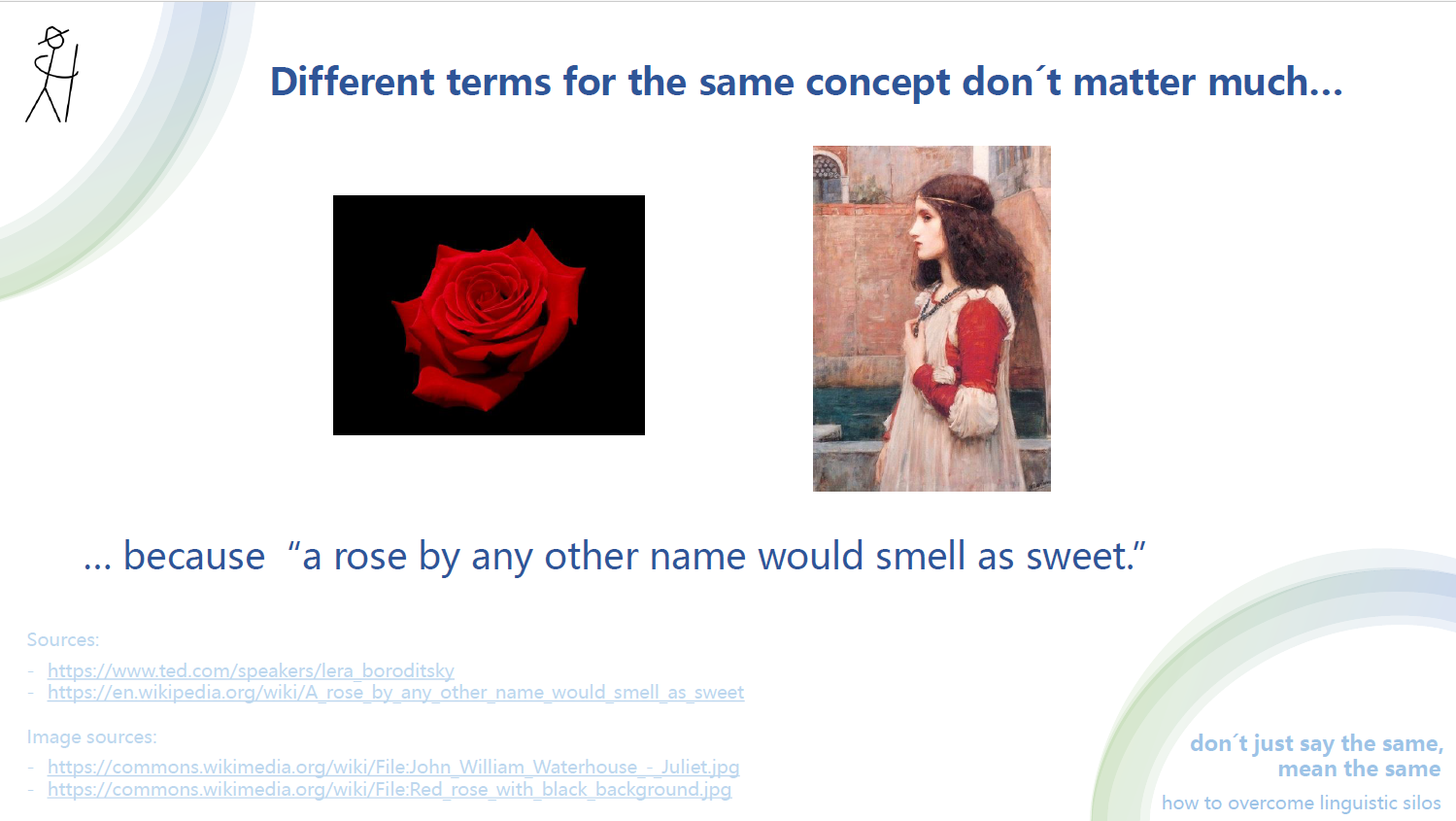
On the other hand, using the same term for different concepts is already more confusing.
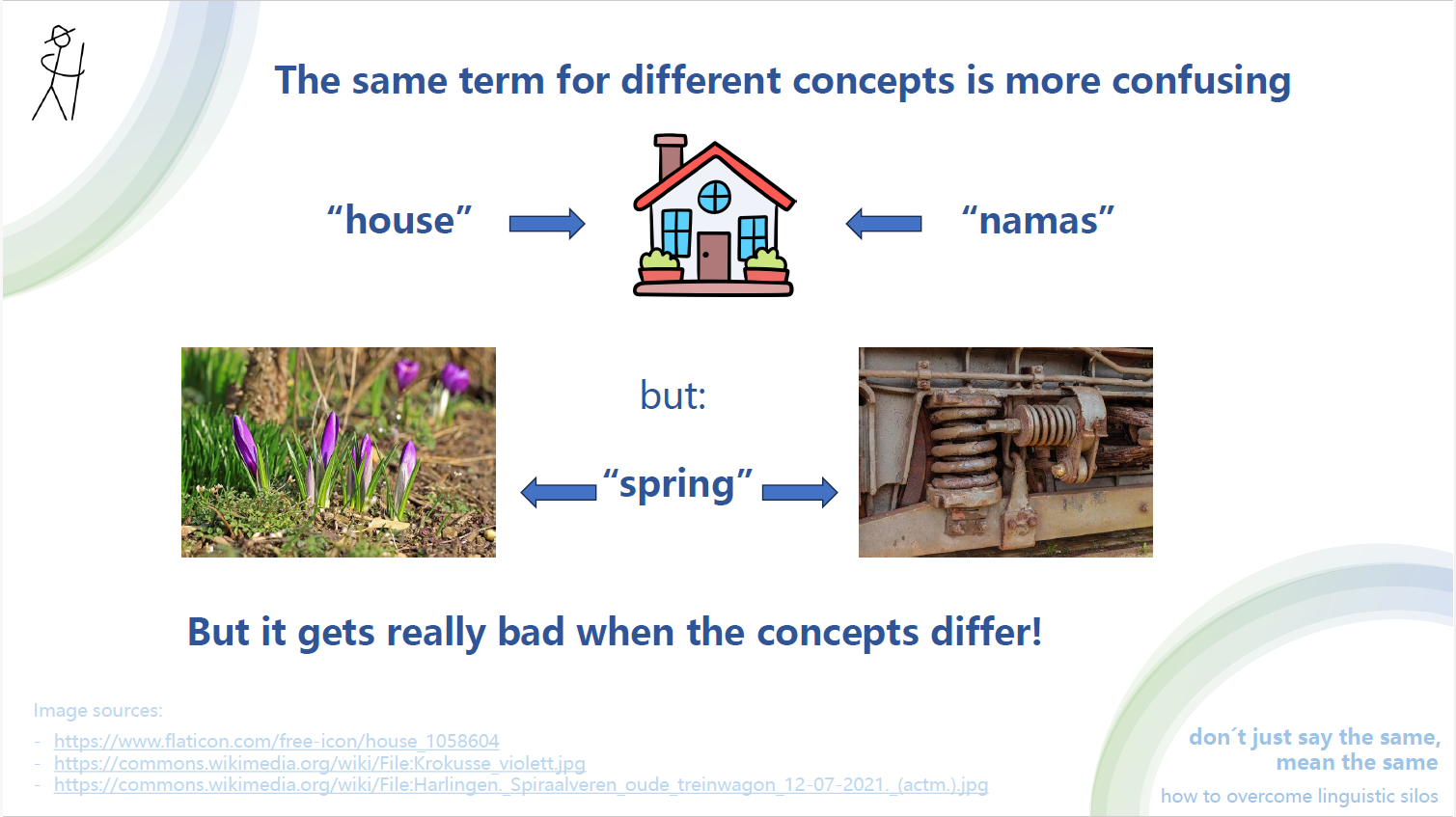
But when languages use different concepts, it gets really bad.
I am from Switzerland. We have 4 official national languages. 3 of them we share with our neighbours Germany, France and Italy.
But languages come in flavours, styles and dialects.
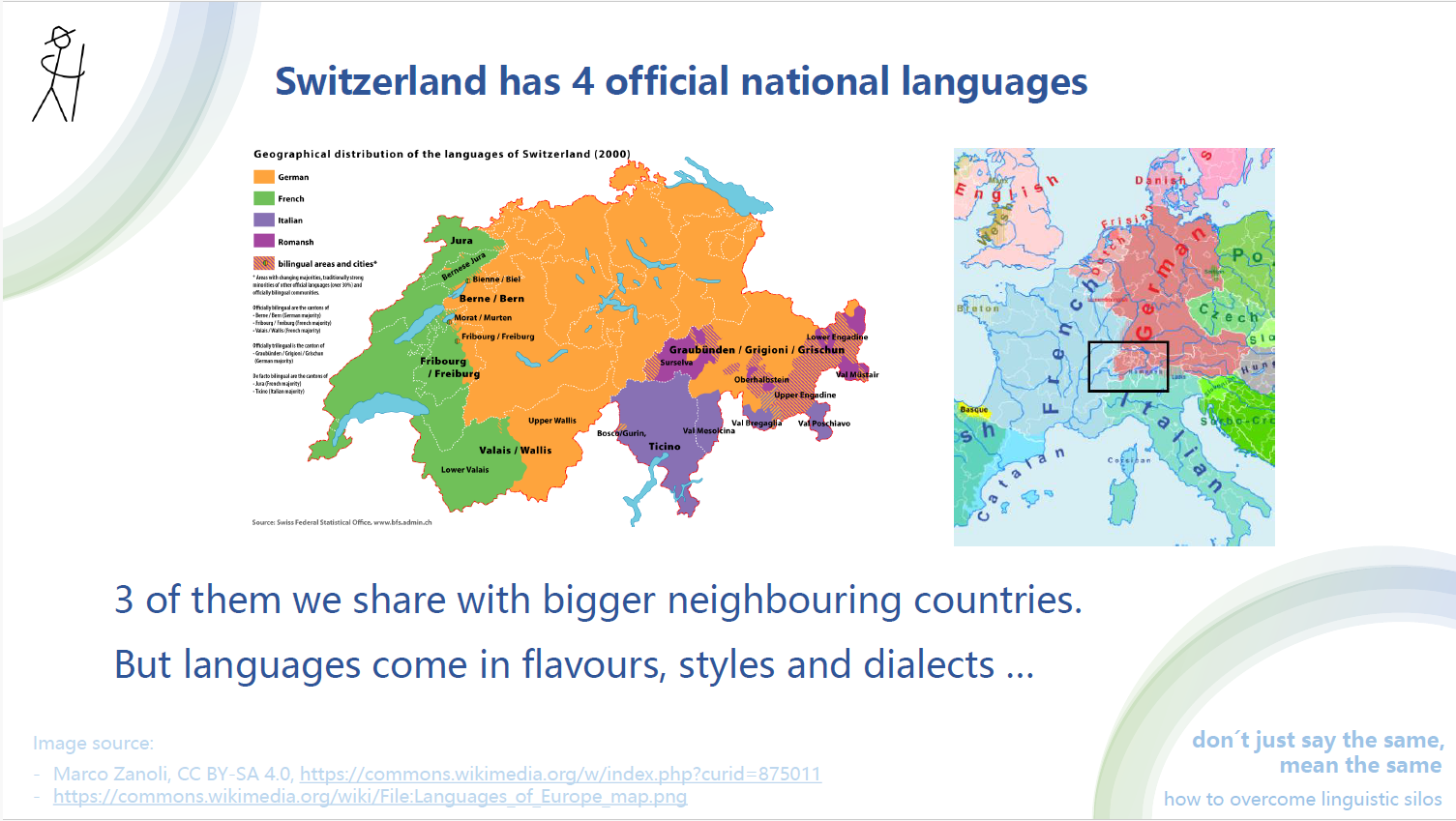
I am from the German-speaking part. I learnt French at school. French French.
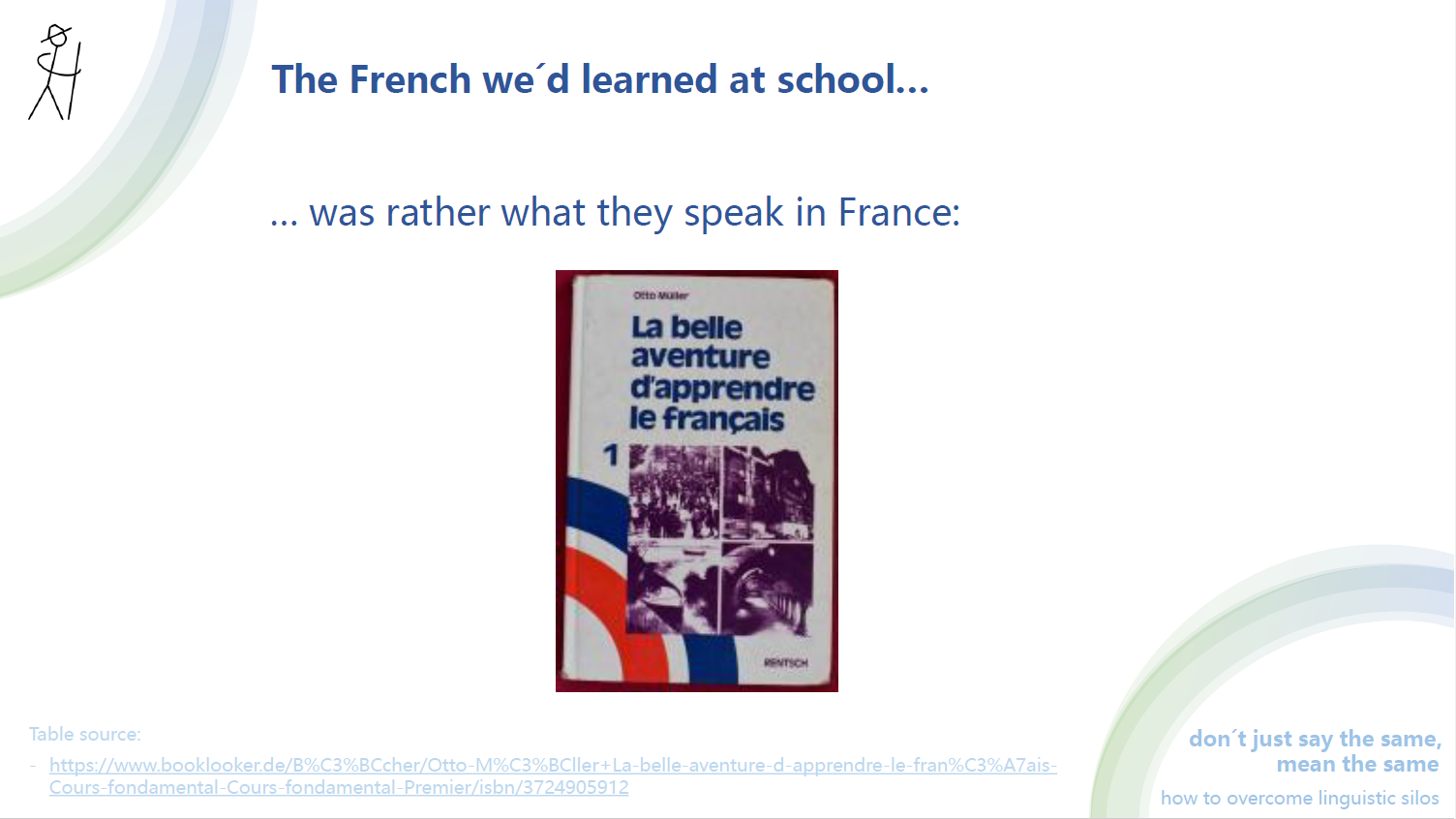
And then I served in the Swiss Army as a quartermaster sergeant. And a captain ordered a “dîner” for his 100 soldiers. And then he called me angrily at 12:15:
- “Where’s my dîner?!”
- “Well, it will be served at 6 in the evening, of course.”
A very uncomfortable situation…
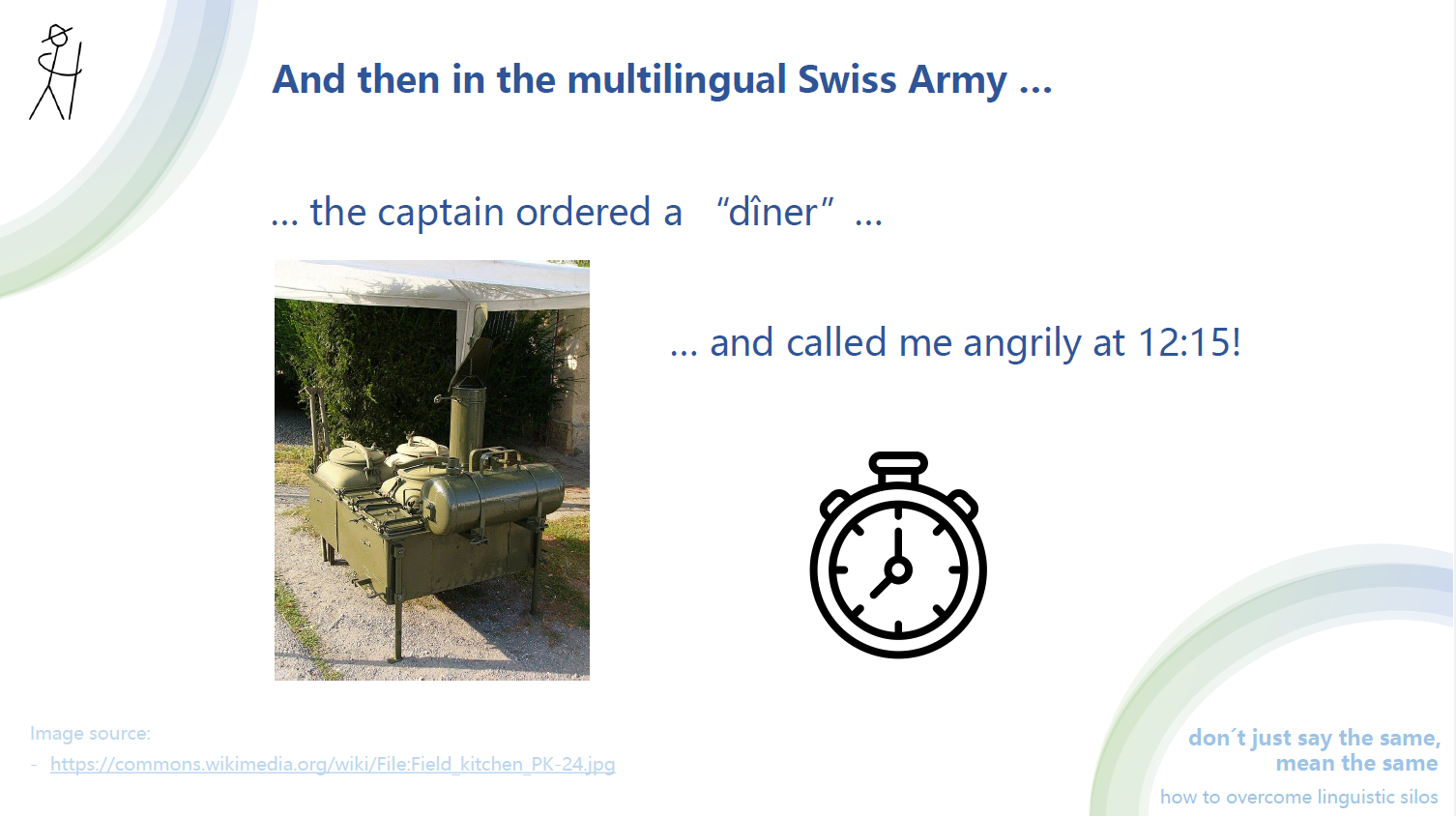
What’s the problem here? The problem is that while for a Frenchman “dîner” is the evening meal, for a French-speaking Swiss it is lunch!
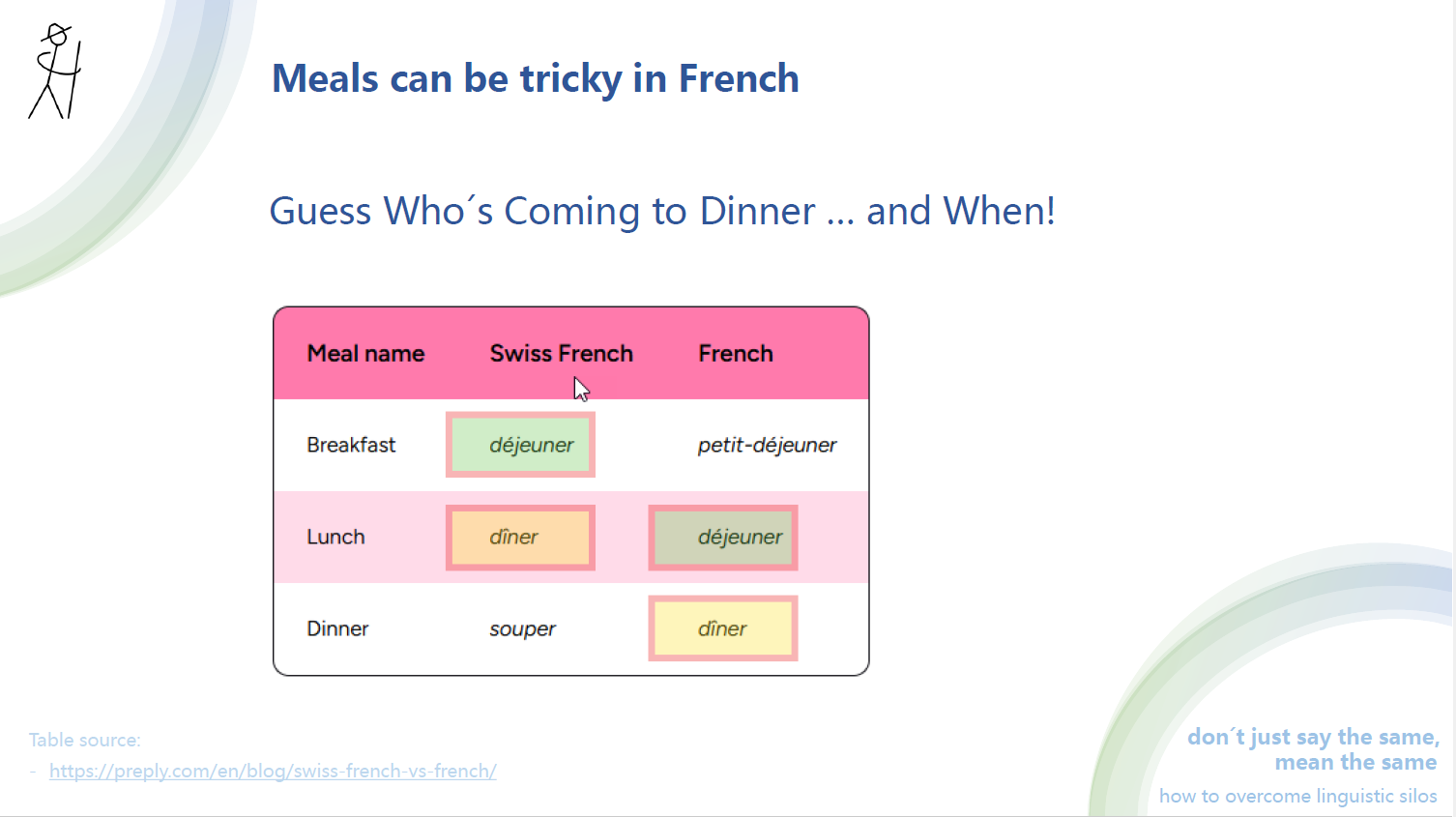
And English is not much better!
According to Wikipedia, dinner is a meal of any size eaten at any time of the day! And the meaning as the evening meal is only becoming standard in most places.
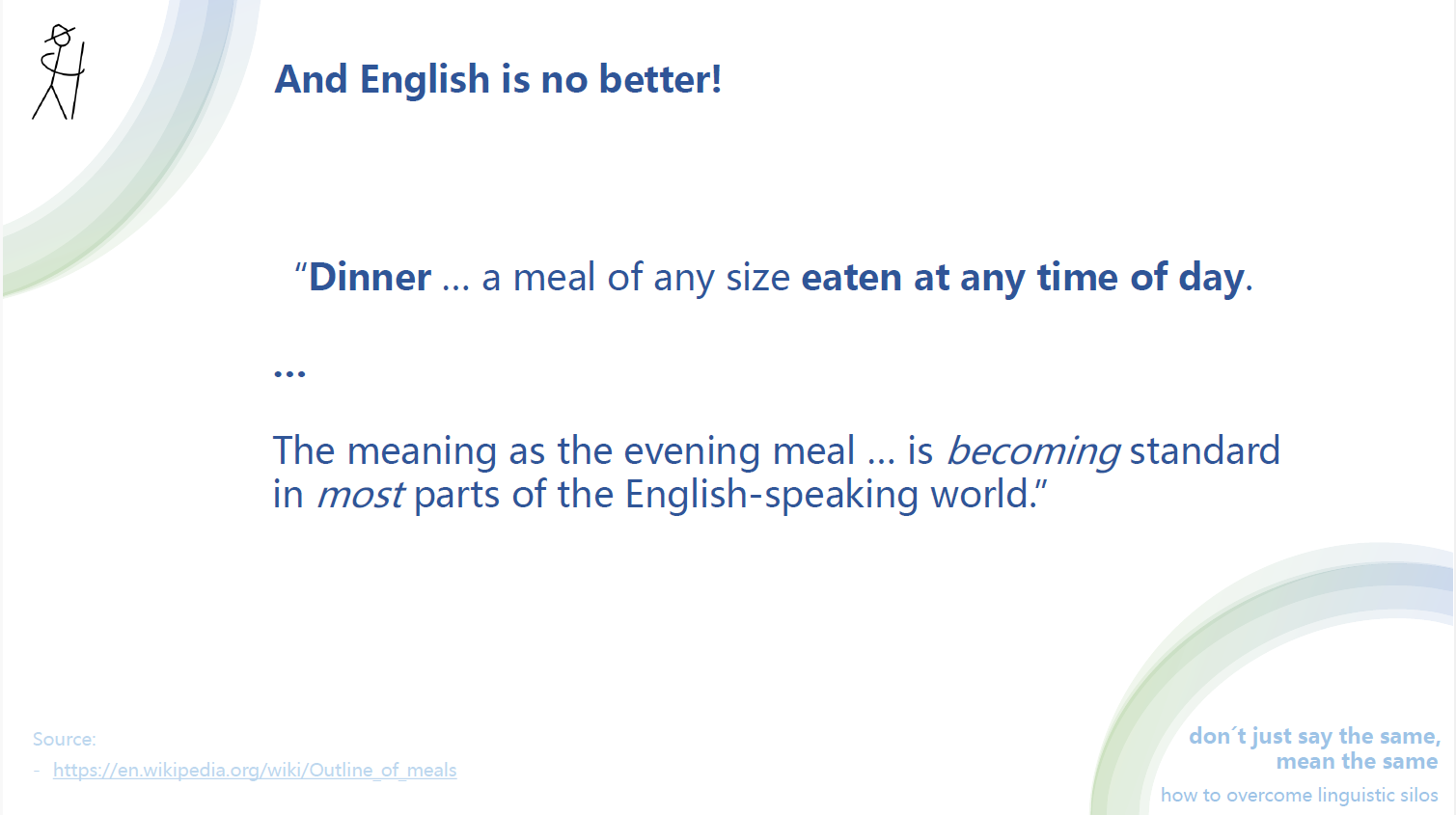
Another real-world example:
My Ukraininan colleague Olha usually said at the daily stand-up something like “We have met with David yesterday to discuss the solution.”
How many people have met?
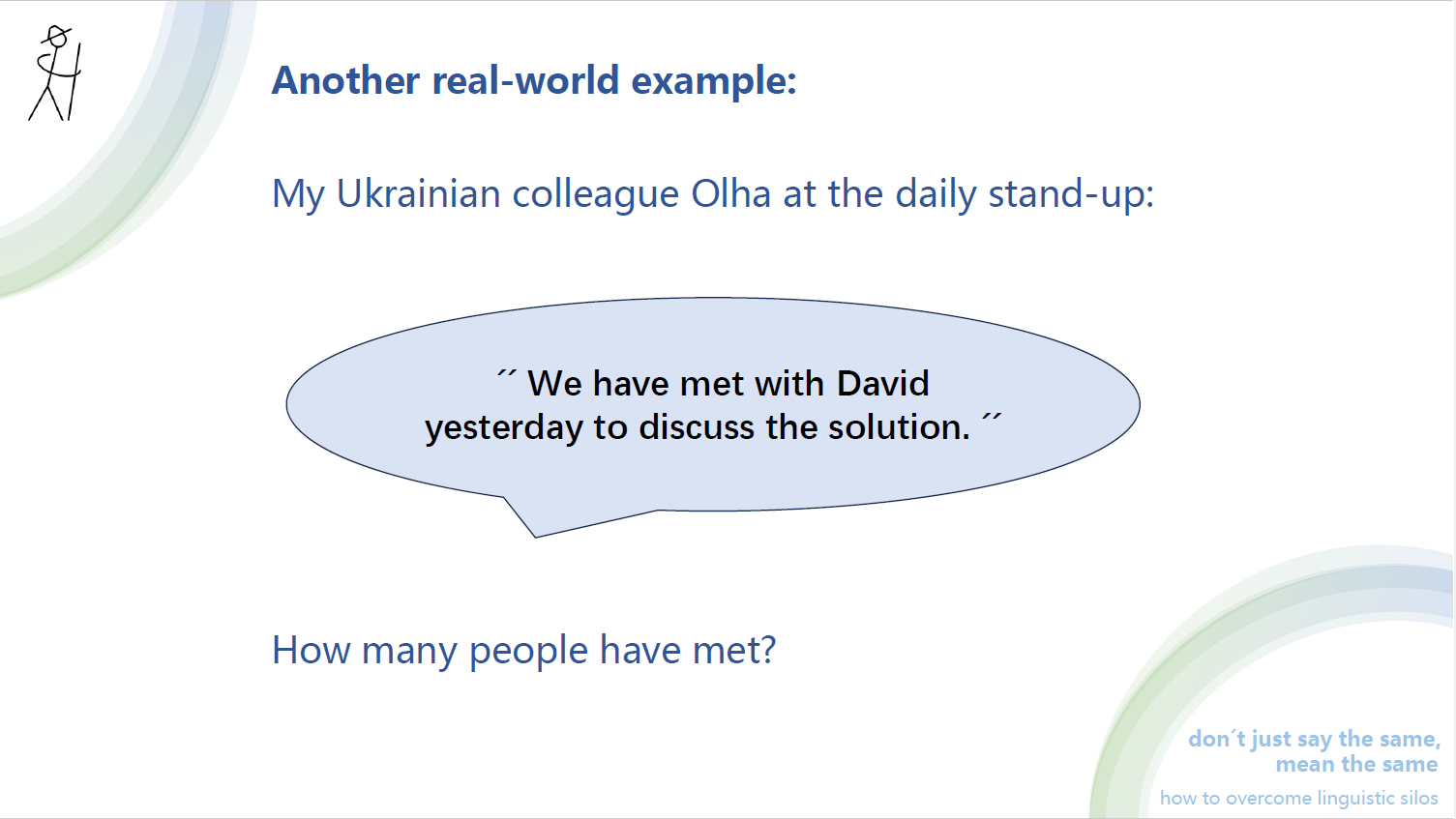
At least 3, right?
But then I learnt that many times only 2 people would have met.
What’s going on here? Is Olha using the queen’s plural on herself? Is she such an arrogant diva?
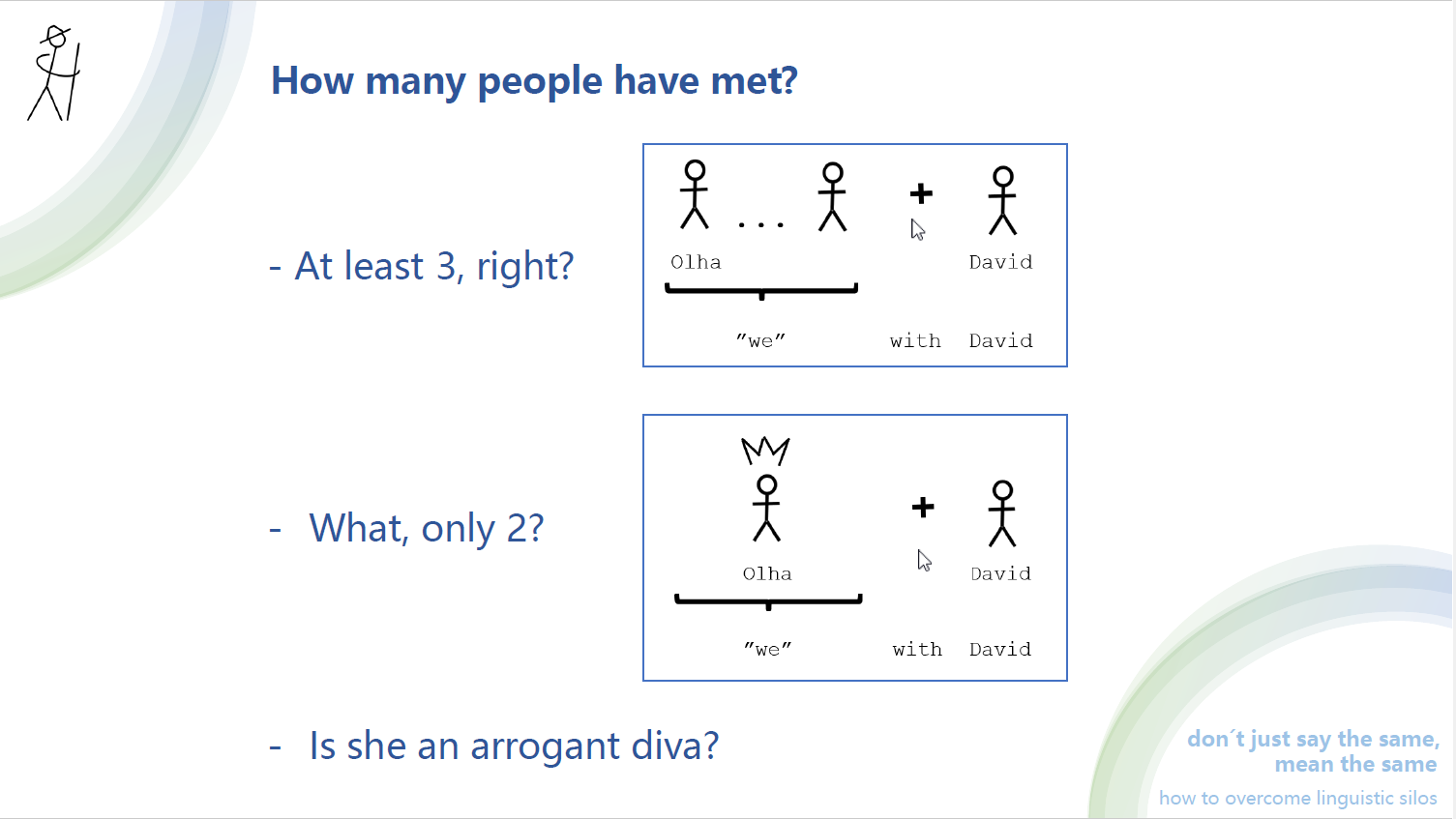
Well, no, because in Slavic languages there is the “inclusive we”. A very nice concept which we lack in English or German.
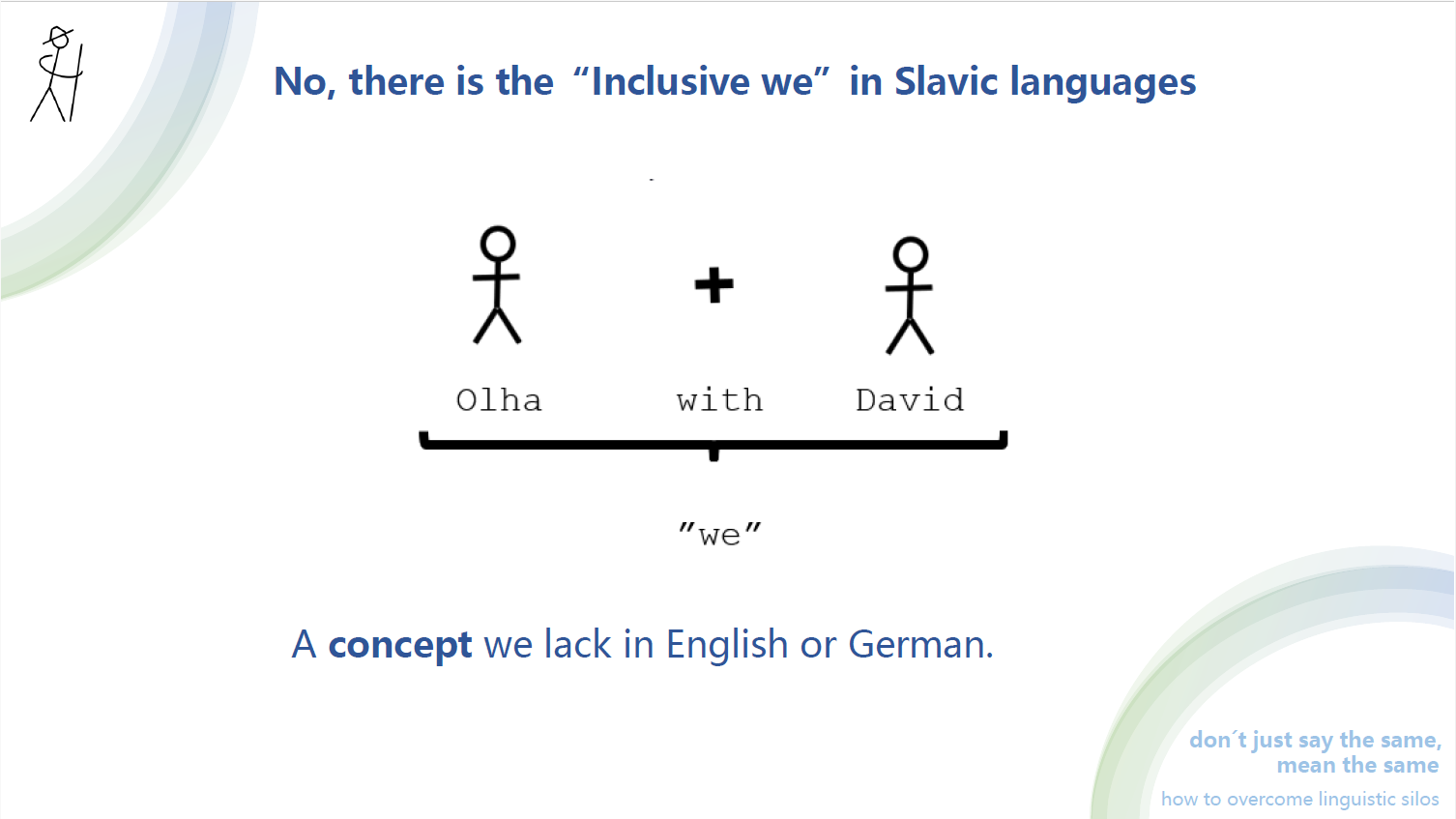
Then there is the gender of the sun.
In German it’s female, in Italian male. Maybe because in Germany, people used to long for some sweet warmth after a long cold winter, while in Italy they always knew the destructive force of the hot sun.
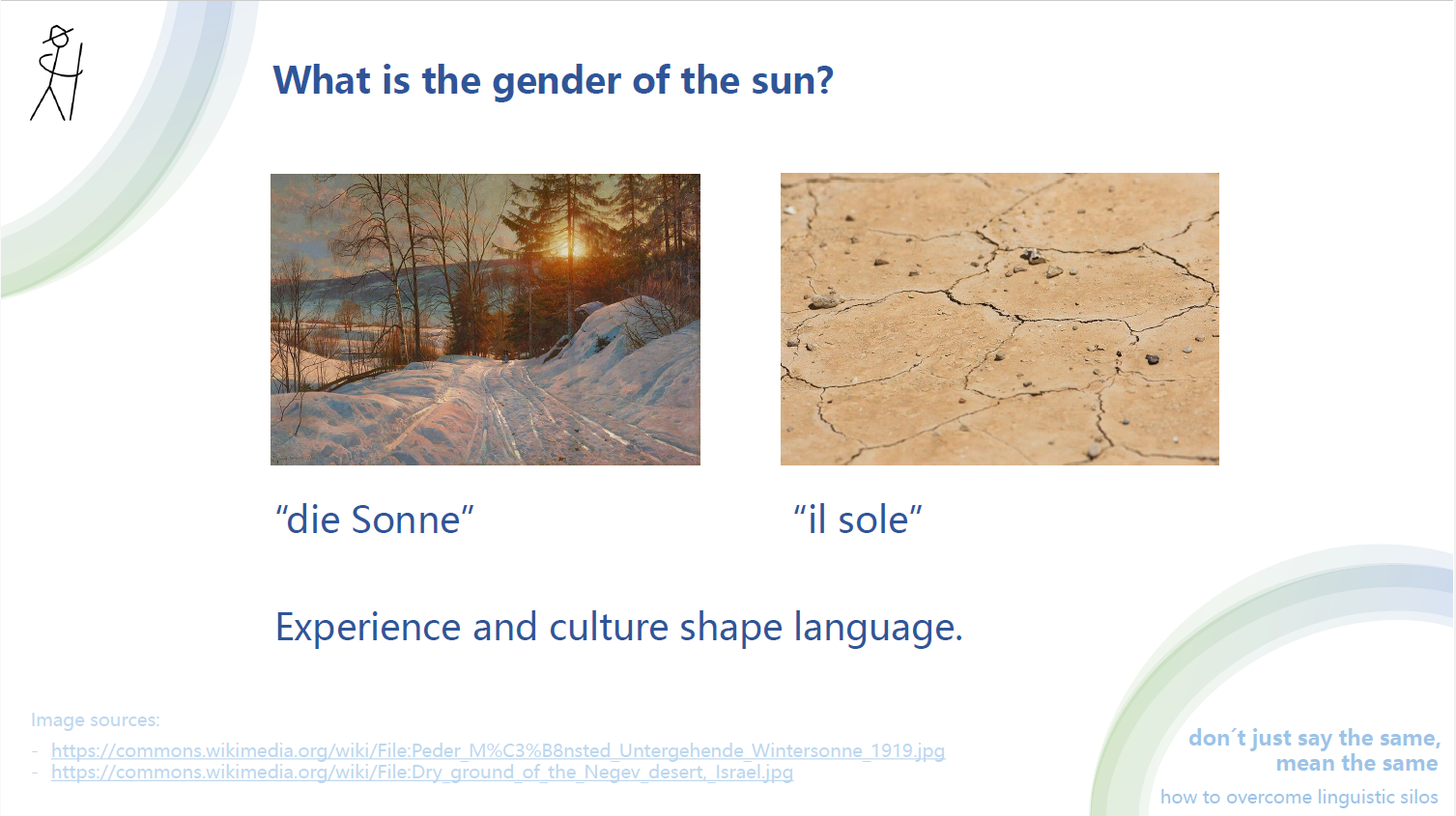
Experience and culture shape langage.
And research done by linguists like Lera Boroditsky shows that this also works the other way round: Language shapes the mental model and even the perception of the world.
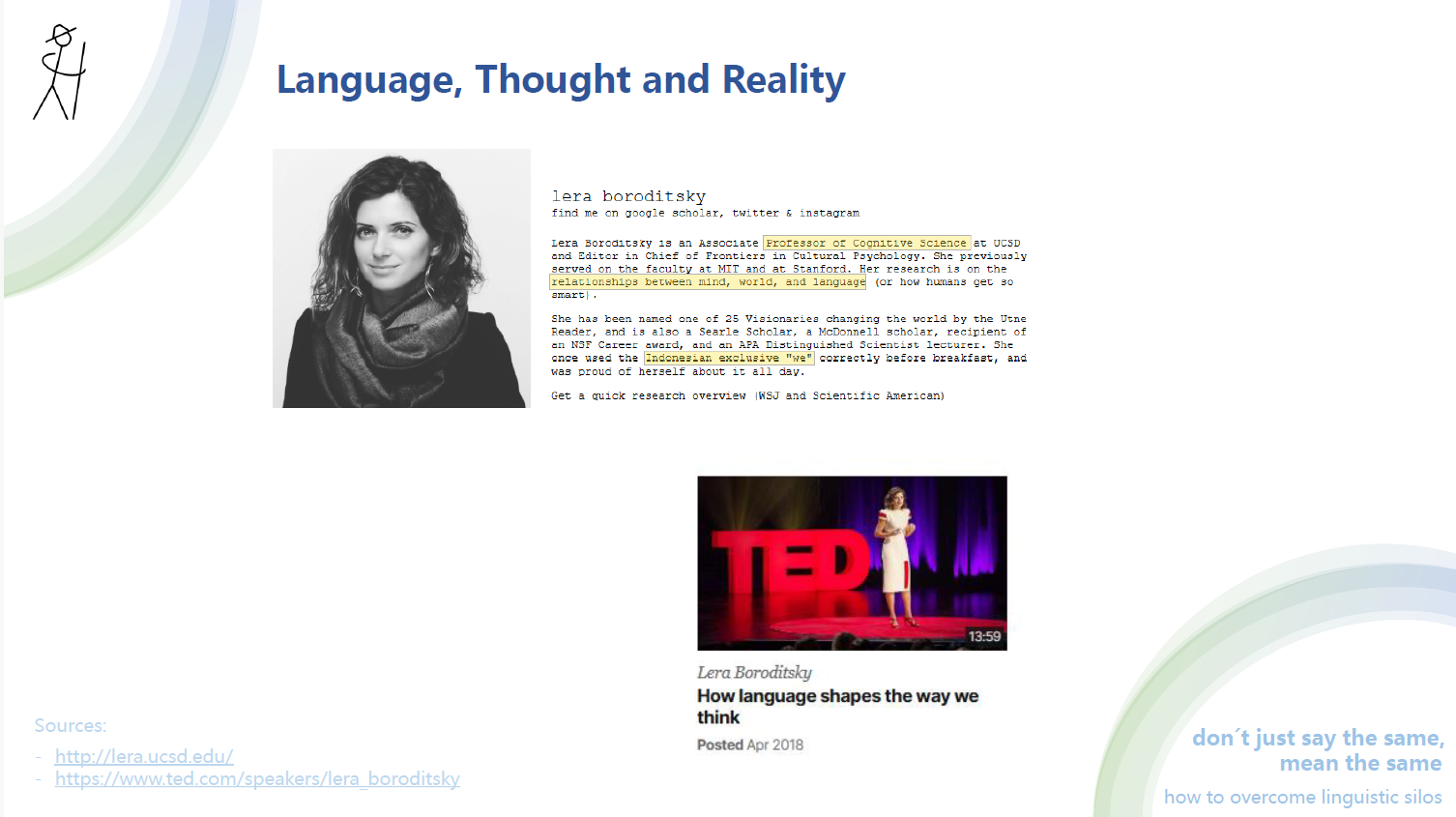
Bridges are male in Spanish and female in German. And Spanish people tend to describe bridges with male attributes like “strong”, while Germans tend to use female attributes like “beautiful” or “elegant”.
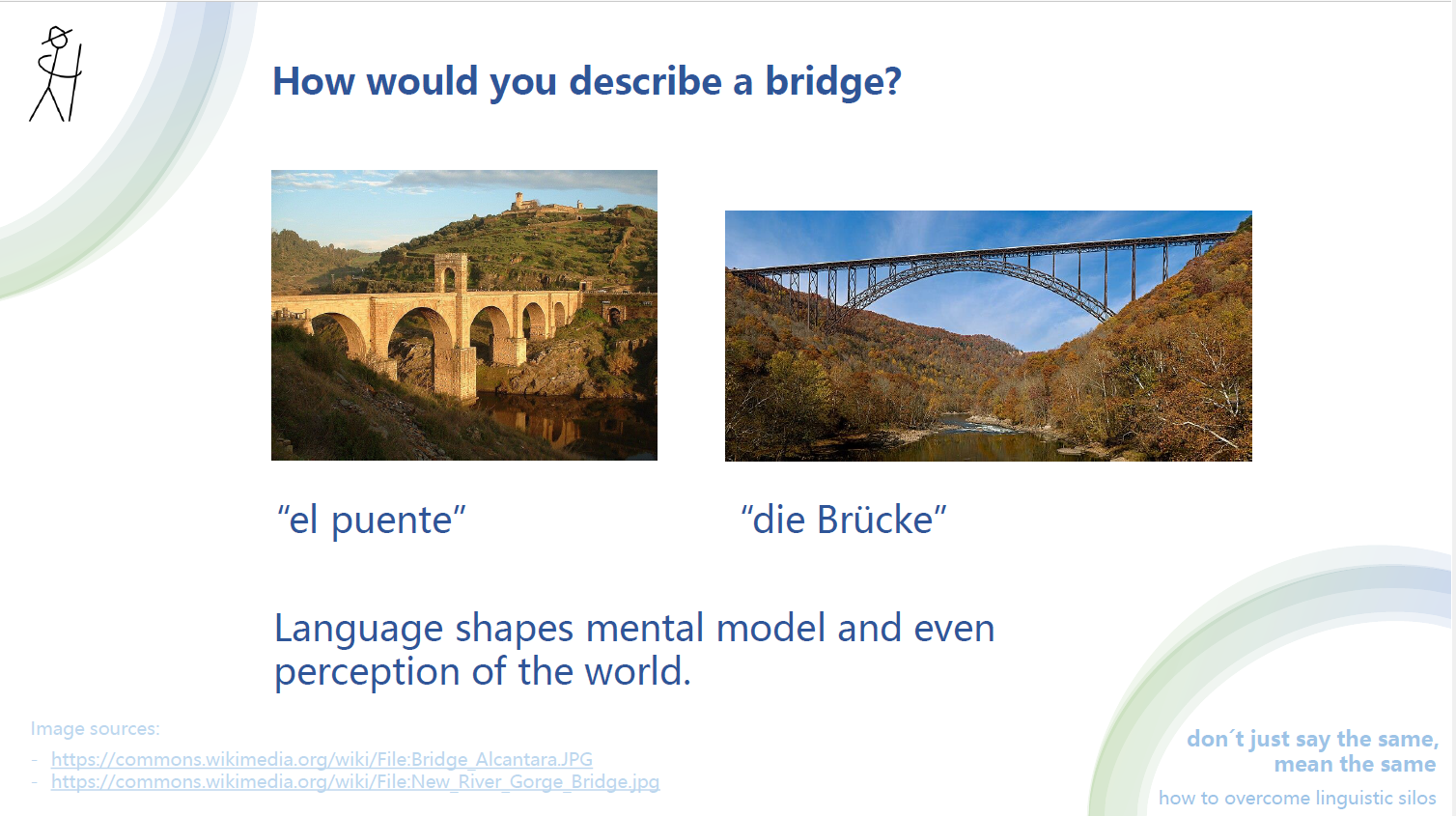
So in a linguistically diverse team, even if we all seem to speak the same language, we have different linguistic backgrounds which can create linguistic barriers or silos.
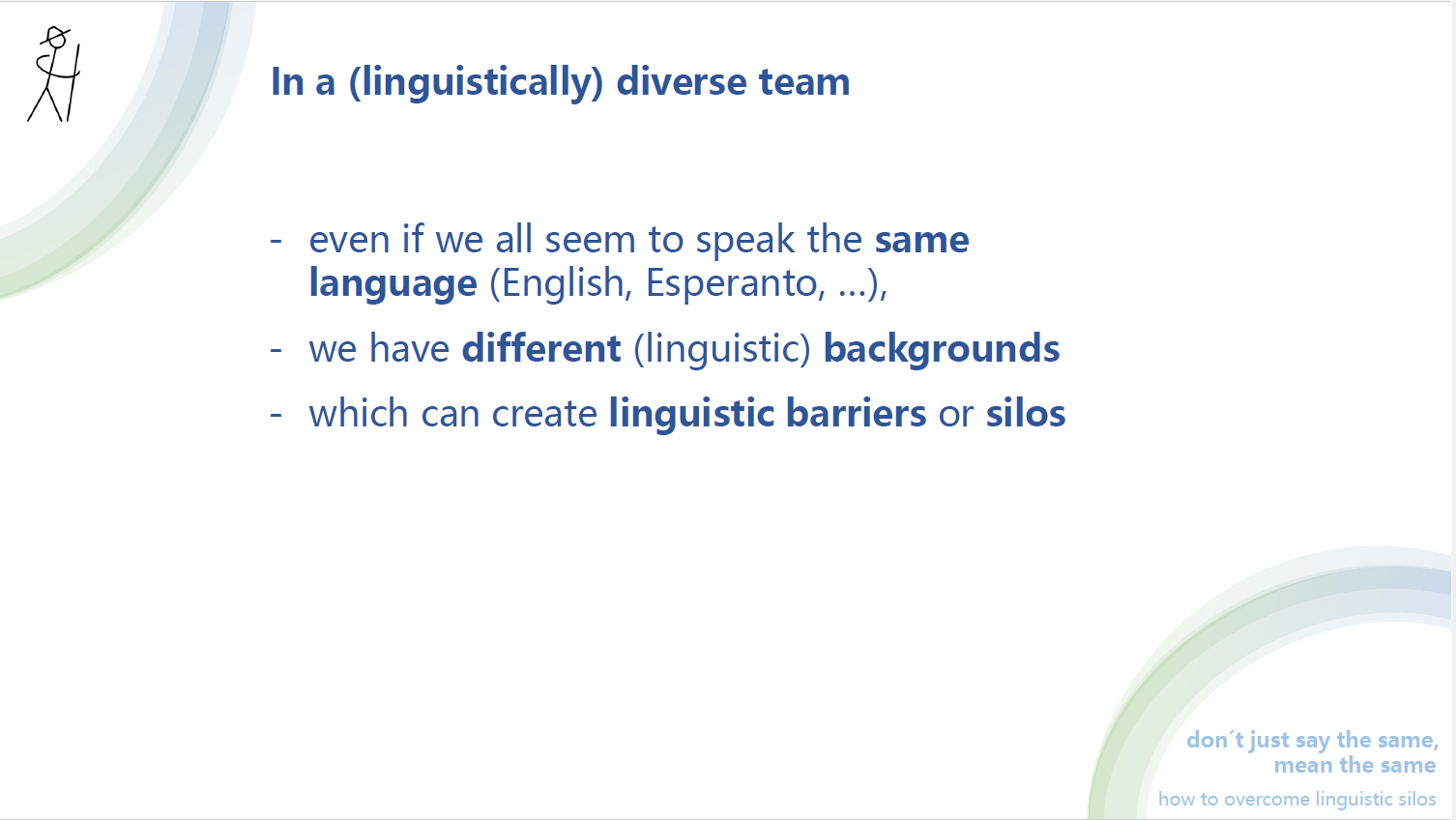
Now what does all of this have to do with devops?
Well, devops is about overcoming the friction created by silos, and thus about collaboration.
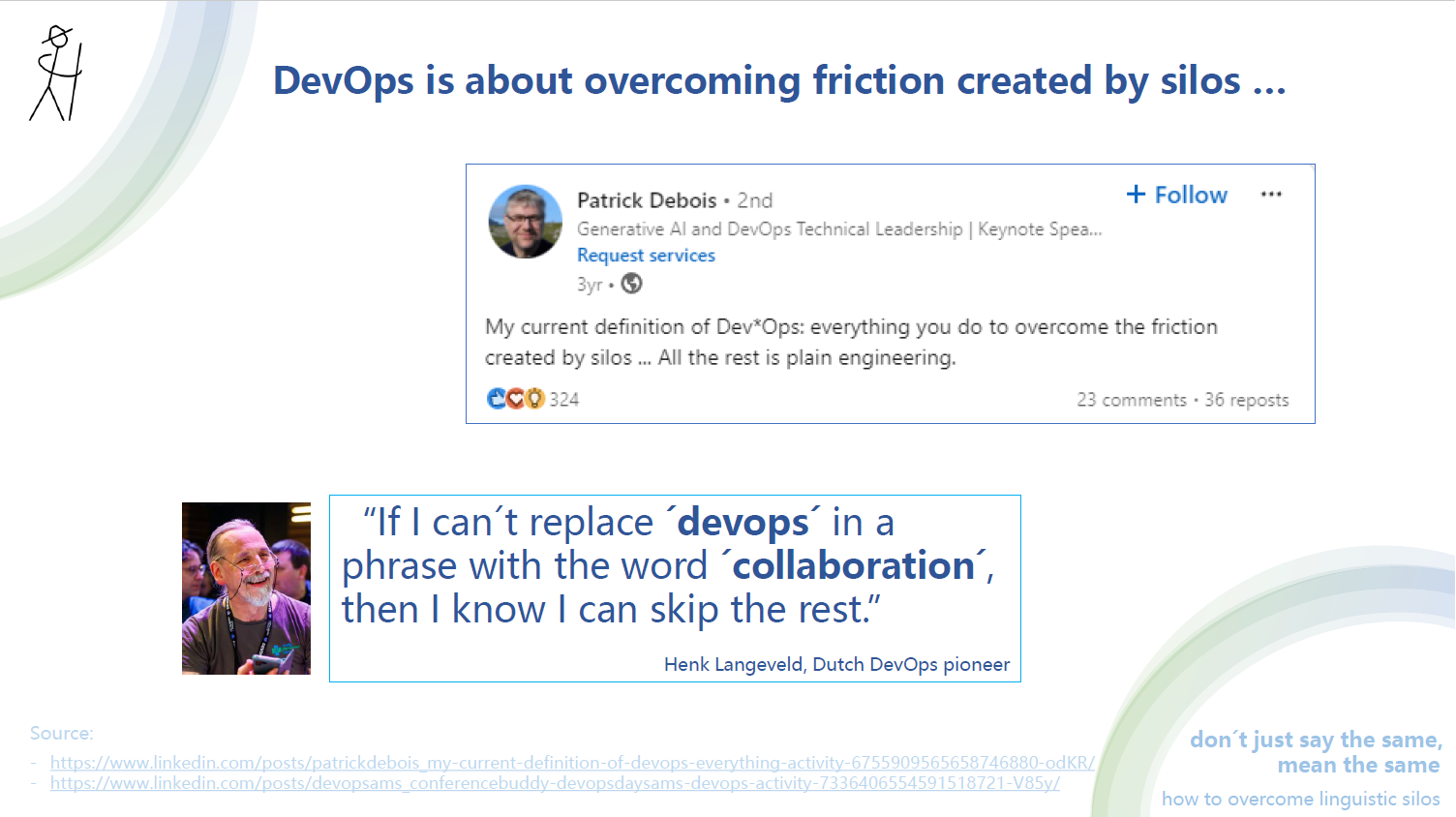
How can we overcome linguistic silos?
We need to accept and embrace diversity and recoginize our own hidden assumptions by stepping out of our silos, for example by learning other languages.
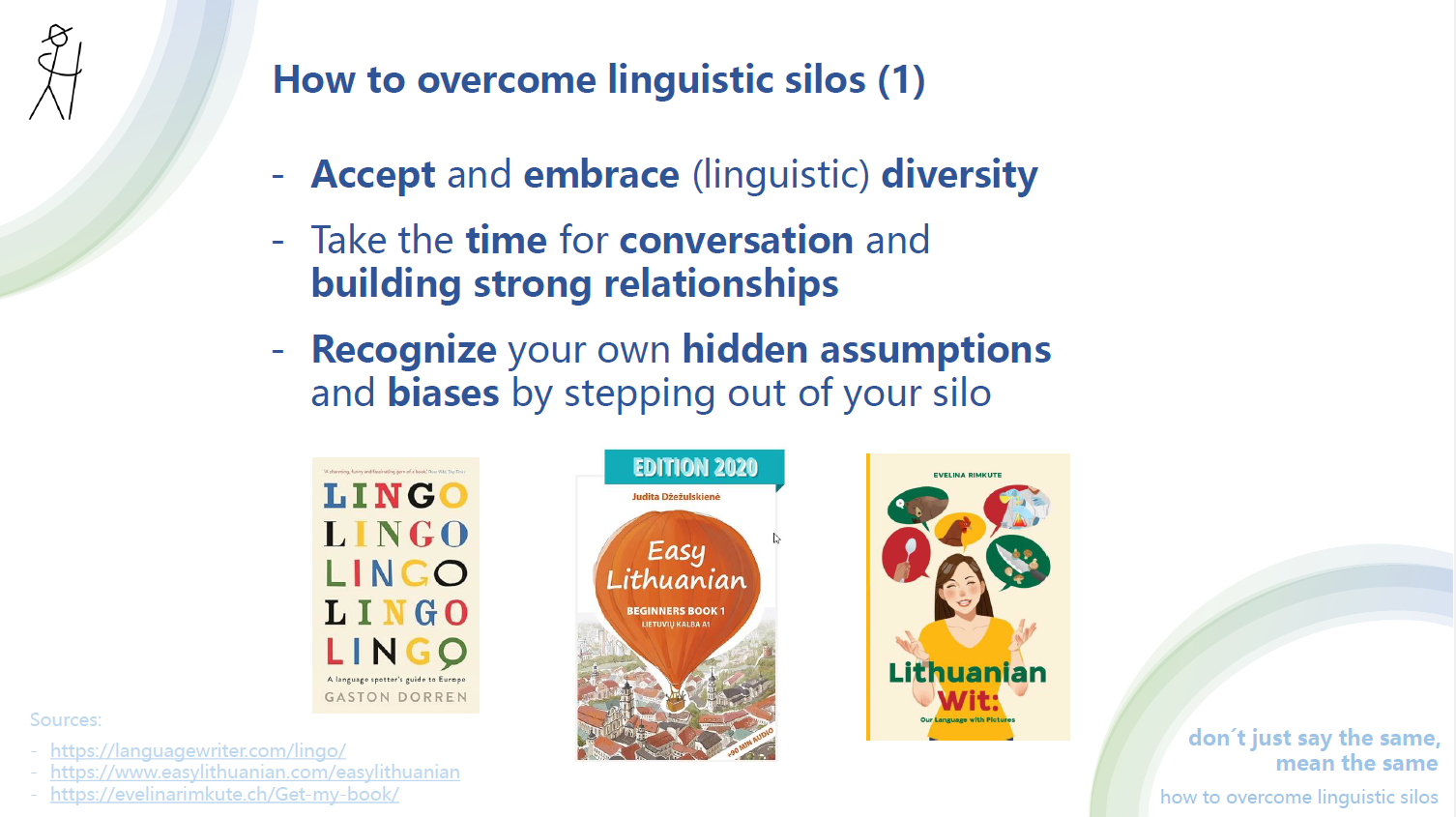
And we need to formulate explicit requirements, define terms, challenge terms, maybe even create our own team terms and metaphors.
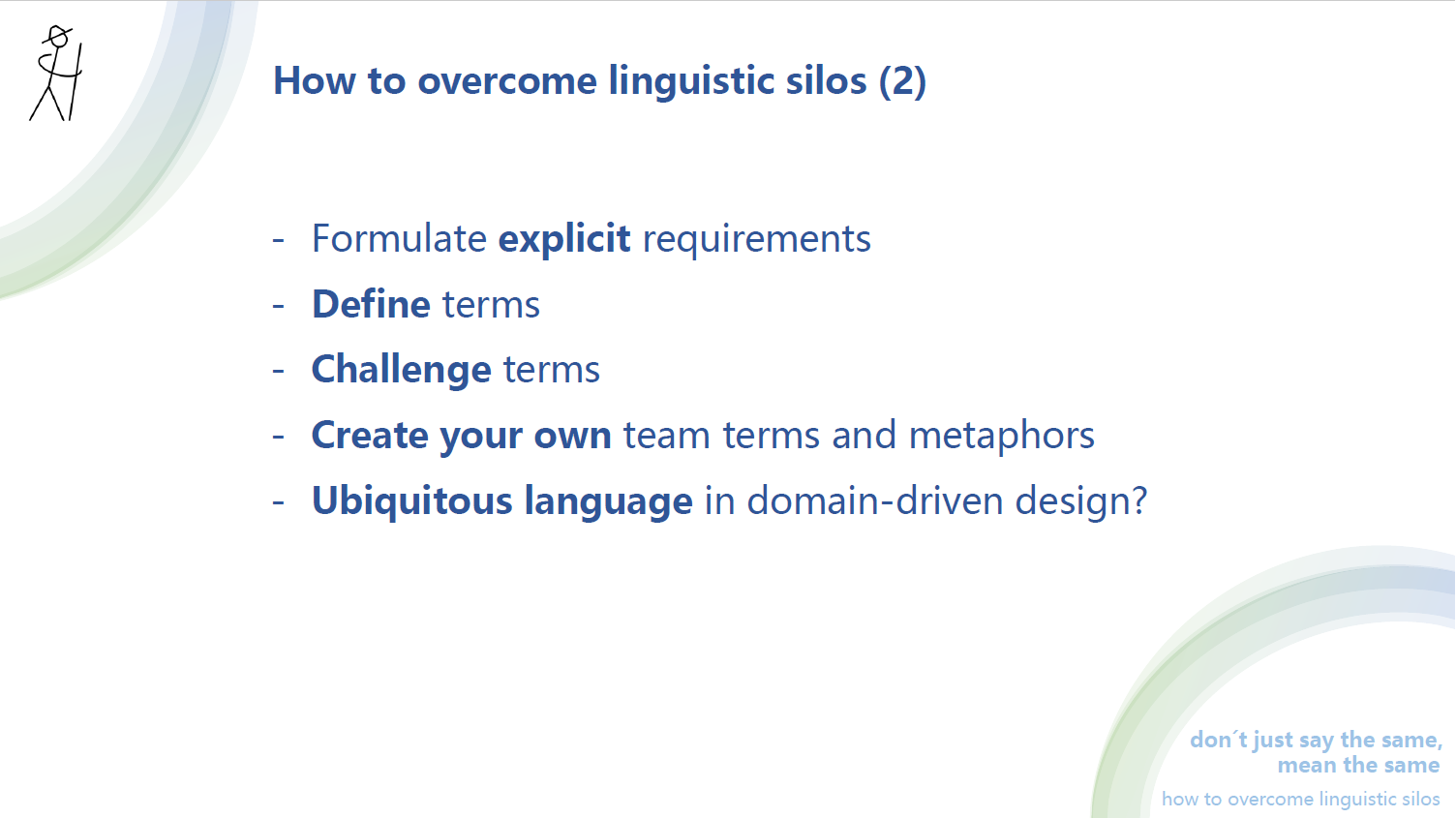
Time’s up already! Thank you for listening! You’re allowed to talk to me afterwards!
(pointing at my name tag with the “Come talk to me” sticker)
And if you do it in Lithuanian, please keep it slow and easy! Ačiū!
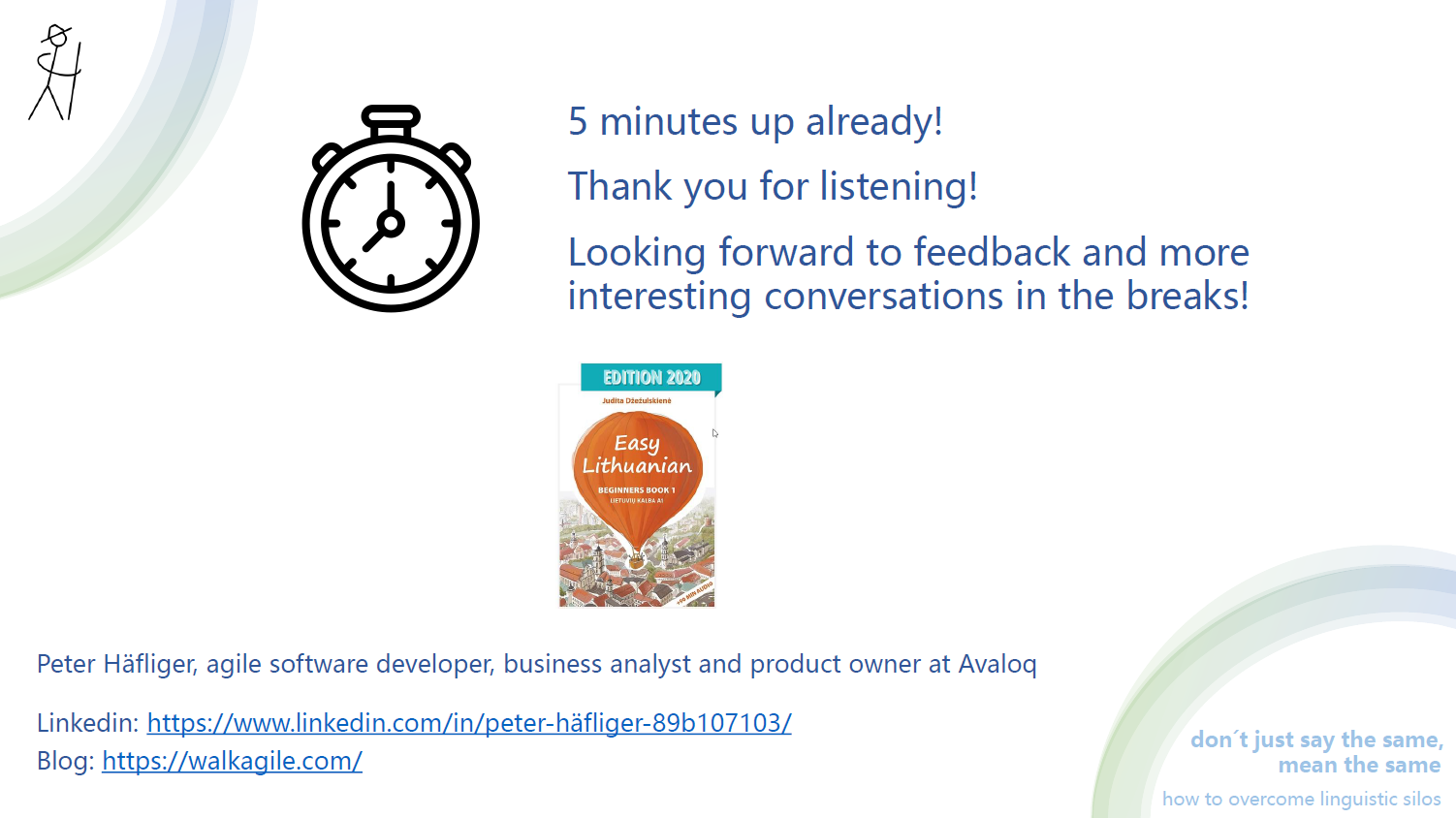
The full PDF slide deck can be found here.
